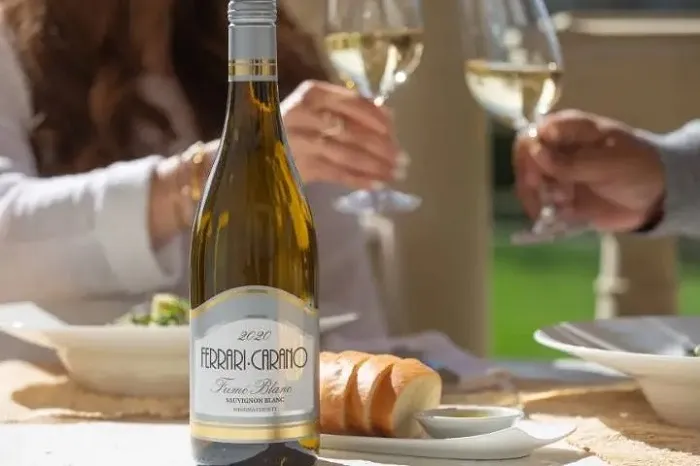Sauvignon Blanc is one of the world’s most beloved white wine varieties. Known for its vibrant acidity, fresh herbal notes, and clean finish, this grape has made its way into the vineyards and glasses of wine enthusiasts globally. Whether you’re a casual drinker or a seasoned connoisseur, understanding the characteristics of Sauvignon Blanc Wine adds depth to your tasting experience. Originating in the Bordeaux region of France, Sauvignon Blanc has spread across continents to New Zealand, California, Chile, South Africa, and beyond. This guide will explore everything you need to know, including the Sauvignon Blanc Wine Taste, colors, pairings, and prices.
The Origins and History of Sauvignon Blanc
Sauvignon Blanc traces its roots back to France, particularly the Loire Valley and Bordeaux. The name “Sauvignon” is derived from the French word “sauvage,” meaning wild, which alludes to its early growth in untamed vineyards. Historically, it was often blended with Sémillon in Bordeaux wines, contributing sharp acidity and herbal complexity. It wasn’t until the 20th century that Sauvignon Blanc began making a name for itself as a single varietal wine, notably in the Marlborough region of New Zealand. This region revolutionized the wine’s profile, introducing flavors of tropical fruit and citrus that are now globally recognized.
Sauvignon Blanc Wine Taste Profile
The Sauvignon Blanc Wine Taste is one of the most recognizable among white wines. Expect zesty acidity and a refreshing profile that often includes:
Green apple
Lime
Gooseberry
Passionfruit
Grapefruit
Fresh-cut grass
Green bell pepper
These flavors vary based on terroir. For example, French Sauvignon Blanc tends to be more mineral and citrusy, while New Zealand examples emphasize tropical fruit and herbaceousness. The style can also be influenced by winemaking techniques, such as fermentation in stainless steel for crispness or oak barrels for a richer mouthfeel.
Sauvignon Blanc Wine Colors
The Sauvignon Blanc Wine Colors range from pale straw to light gold. The color reflects both the wine’s age and its production methods. Young Sauvignon Blancs are usually a light, almost transparent yellow with greenish hints, indicating freshness and youth. Aged examples, especially those with some oak contact or late harvest styles, may exhibit deeper golden hues. Cloudiness or overly deep color could suggest oxidation or spoilage.
Sauvignon Blanc Wine Pairing
Thanks to its high acidity and fresh flavors, Sauvignon Blanc Wine Pairing options are vast. It works beautifully with foods that echo its vibrant character. Some ideal pairings include:
Goat cheese and other fresh cheeses
Grilled white fish
Shellfish like oysters or clams
Salads with vinaigrette
Vegetables like asparagus and peas
Thai or Vietnamese dishes with lime and herbs
These pairings highlight Sauvignon Blanc’s crispness and enhance the herbal and citrus notes found in the wine.
Sauvignon Blanc Wine Price
The Sauvignon Blanc Wine Price varies widely depending on region, brand, and production method. Here’s a general breakdown:
Budget: $8–$15 — Common in supermarket brands and regional blends.
Mid-Range: $15–$30 — Includes reputable producers from France, New Zealand, and the U.S.
Premium: $30–$100+ — Often oak-aged or estate-grown wines, particularly from Sancerre or Napa Valley.
Despite these price ranges, Sauvignon Blanc remains accessible and offers excellent value for its aromatic complexity and versatility.
Climate and Terroir Influence on Sauvignon Blanc
Climate and terroir play a crucial role in shaping the flavor and structure of Sauvignon Blanc. Cool climates, such as the Loire Valley or coastal New Zealand, produce wines with high acidity and grassy, citrus notes. Warmer regions, like California and South Africa, yield fuller-bodied wines with melon and tropical fruit characteristics. Soil composition, altitude, and vineyard practices further affect aroma intensity, sugar levels, and mineral complexity.
Popular Sauvignon Blanc Regions
Globally, several key regions have carved out reputations for producing outstanding Sauvignon Blanc:
France: Loire Valley (Sancerre, Pouilly-Fumé)
New Zealand: Marlborough
USA: California (Napa, Sonoma)
Chile: Casablanca Valley
South Africa: Western Cape
Italy: Friuli Venezia Giulia
Each region offers a unique interpretation of the grape, giving wine lovers a wide spectrum of styles to explore.
Winemaking Techniques That Affect Sauvignon Blanc
From vine to bottle, several techniques influence Sauvignon Blanc’s final profile:
Fermentation Vessel: Stainless steel preserves freshness; oak barrels add richness and texture.
Lees Aging: Adds creaminess and complexity.
Malolactic Fermentation: Rare for Sauvignon Blanc, but when used, softens acidity.
Blending: Sometimes blended with Sémillon or Muscadelle for added depth.
These choices reflect the winemaker’s stylistic intentions and regional traditions.
How to Serve and Store Sauvignon Blanc
Sauvignon Blanc is best enjoyed young and fresh, typically within 1–3 years of bottling. Serve it chilled at around 45°F (7°C) in a white wine glass to concentrate its aromatic profile. Proper storage is key to preserving its vibrancy. Keep bottles away from light and heat, stored horizontally at a constant cool temperature. Once opened, Sauvignon Blanc should be consumed within 2–3 days for optimal taste.
Food Recipes to Enjoy with Sauvignon Blanc
If you’re looking to prepare meals that showcase Sauvignon Blanc’s culinary compatibility, consider recipes such as:
Lemon-herb grilled shrimp
Goat cheese crostini with arugula
Chicken piccata
Vietnamese spring rolls
Asparagus risotto with lemon zest
These dishes echo the wine’s fresh and zesty attributes, creating a perfect flavor synergy.
Conclusion
Sauvignon Blanc is an exceptional wine that offers clarity, vibrancy, and a spectrum of flavors that reflect its terroir. From the aromatic Sauvignon Blanc Wine Taste to its broad Sauvignon Blanc Wine Pairing possibilities and affordable Sauvignon Blanc Wine Price points, it is a versatile choice for all wine lovers. Whether you’re enjoying a glass on a sunny afternoon or pairing it with a gourmet meal, Sauvignon Blanc delivers a refreshing and refined experience every time. Don’t miss the opportunity to explore its many expressions across different regions and winemaking styles.
You Might Be Interested In:


